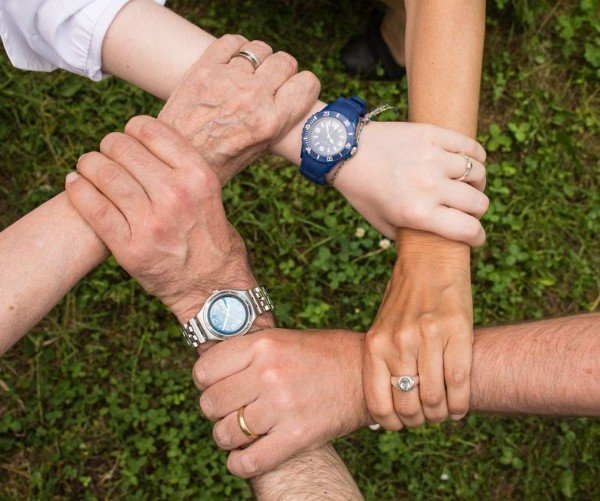From Loneliness To a Sense of Community
U.S. Surgeon General Vivek Murthy has highlighted loneliness and isolation, which he says occur when a person needs more connections in life than they have, as public health concerns. This speaks to the subjective nature of how and why people experience loneliness.
It was caused by the pandemic…
We lost our “built-ins”
If you are experiencing loneliness, you’re not unusual. The pandemic lockdowns and the consequent surge of working remotely led many people to feel isolated, especially those living alone. The customary ways that people connected with others were changed.
Those who looked to the routine gatherings of a religious community were out of luck for the most part.
People who regularly went to an office or other workplace lost a daily sense of connection. And many found that Zoom meetings just didn’t make up for the informal chats they had at the workplace with colleagues, in addition to the scheduled meetings.
We couldn’t in good conscience go to friends’s homes, movie theaters, performances, and other group activities. Singles who matched on dating apps were scheduling park-bench first dates six feet apart and wondering when they would feel comfortable and ready to risk a more conventional dating experience.
Luckily those days have passed.
…or was it?
But many people felt lonely before the lockdowns and many more have moved to new locations because of the freedom to work remotely or because of general life changes. I remember working with a new college graduate many years ago who struggled with how much planning it took to make friends and socialize without the built-in convenience of dorm life, dining halls, and classes to meet and connect with others.
Religious or political communities are easy to find if you are so inclined. But if you’re not, how do you find a sense of community?
Starting conversations with people you see in your daily life and being open to people starting ones with you can be a jumping off point, It may not come naturally to you, depending on your personality and how you were raised, but these casual connections can turn into more over time.
“Fetch” connections
Dog runs are a great place to meet other dog owners. A close friend who moved to Manhattan after the death of her partner made a close group of friends after she adopted a dog and began going to the dog run. They are now some of her closest friends and refer to themselves as the “bow-wow sisterhood.” These women are fully integrated into each other’s lives, with husbands and partners becoming friends and helping each other through challenges and cheering each other’s joys.
“I’ll have the usual, please”
Becoming a regular at a neighborhood coffee shop or bar can also foster a sense of community. Look for a coffee shop with friendly baristas and start conversations with them. Introduce yourself to them. Same with bars or other places you frequent.
Vulnerability helps
A new friend and I were talking about life during the pandemic, and he talked about meeting people in the neighborhood outside a bar and strengthening their sense of community over time. He compared it to the dark days in Manhattan after 9/11 when a sense of vulnerability made people more open to connection.
Explore your interests and make room for new ones
Classes allow people to meet others with whom they share an interest. So do Q & A’s after movies, performances, and other events. Meet up groups are also great for this. Some are geared for singles interested in dating, and others are more for meeting potential new friends. Hiking clubs, running clubs, and biking clubs are helpful when looking for others to share physical activities. Joining a book club, whether in person or online, is another way to meet people with a common interest.
If this feels like too much, get help
These suggestions can be helpful in breaking your sense of isolation and loneliness, but are no guarantee. If you are someone who didn’t learn to go for things when you were growing up, if your connections to your earliest people were disappointing or dangerous, if prioritizing pleasure and connection weren’t modeled for you growing up, these suggestions may feel out of reach.
It’s also important to look at yourself and see what you’re bringing to a situation of potential connection: What’s your attitude toward others and the world? Are you coming from a place of hostility, judgment, or competition? Are you looking for a chance to talk? Or are you truly looking for a chance to relate to another person? If loneliness and isolation have led to depression, read up on depression treatment here.
Counseling can be helpful in dealing with depression and in learning to warm up and become more open to connection. If you’d like to learn more about building connections and the things that get in the way of that goal for you, please reach out. I’m here to help.


